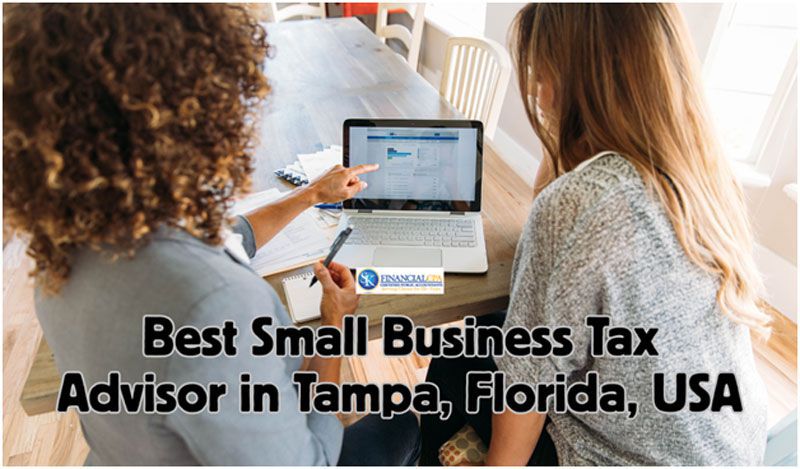Managing taxes as a small business owner in Tampa can be challenging. On the other hand, Tampa’s business-friendly environment is desirable, but that doesn’t end the complexity of the federal tax and regulations, payroll issues, or accurate financial planning. Whether you operate a retail boutique in Tampa or a freelance business at home, a good tax advisor can mean smooth sailing financially. In this blog, we will take you through the different kinds of tax advisors, what small businesses in Tampa need to seek, and why SK Financial CPA, a local CPA firm, is the right choice for you. With the right assistance, you can spend less time stressing over taxes and more time developing your business.
Why Every Tampa Small Business Needs a Tax Advisor
The most appealing thing about Florida is that it doesn’t have a state income tax, but small business owners still have several tax obligations to complete to stay compliant: federal income taxes and self-employment tax, employment tax and payroll reporting, sales and use tax returns, business property taxes, and quarterly estimated taxes. Late or inaccurate filings of any of these can cause penalties, audits, or lost deductions, and in some cases, a delay in the refunds. For all businesses working in Tampa, Florida, a tax advisor assists you in fulfilling your responsibilities, lowering liabilities, and maximizing every deduction that applies to your business or financial situation. In addition to that, to gain the maximum advantage, it’s necessary to have the right tax advisor.
Know about: How to find best CPA in Florida
Types of Tax Advisors for Small Businesses
There is no one-size-fits-all tax advisor. Before you select or start your process to find the best tax advisor, you need to understand what the different types of advisors are, how they are different, and what level of education and expertise they possess. The following is a summary of the primary types and how they assist various business requirements:
1. Certified Public Accountants (CPAs)
CPAs are certified professionals who have been educated in accounting, auditing, and tax law. Most specialize in small business tax planning and have experience with a complete set of financial services, from tax preparation and bookkeeping to strategic planning. In Tampa, businesses with the structure of LLCs, S-Corps, and small businesses planning on expansion mostly refer to working with or hiring a CPA.
2. Enrolled Agents (EAs)
EAs are nationally certified by the IRS to represent taxpayers during audits, filings, and appeals. They are tax law specialists and are particularly useful if you require audit protection or have complex tax problems. EAs typically represent self-employed individuals and small companies with specialized tax structures.
3. Tax Attorneys
Although not typical for routine filings, tax lawyers are necessary when handling legal issues, business startup concerns, or tax litigation. Companies under IRS audit or mergers can use tax lawyers in addition to CPAs.
4. Bookkeepers with Tax Specialties
Some bookkeepers provide basic tax preparation, but they’re not allowed to represent you before the IRS in case of an audit. It might be suitable for a sole proprietorship or a business with simple finances, but their expertise is limited and can feel shoddy, and you still need assistance from a CPA or EA in complex matters.
What to Look for in a Tax Advisor for Your Business
When selecting a tax advisor, look beyond their educational background and certifications. A well-seasoned tax advisor knows your business, its objectives, and its hurdles that you need to overcome to succeed. The following are a few elements that you can look at while finding a suitable advisor for your business :
- Relevant Experience: Seek professionals knowledgeable about your kind of business—retail, consulting, food service, real estate, or tech. You can ask about the ways they utilize knowledge and experience to help businesses in the same niche, which will give you a true picture of their expertise.
- Tax Planning Support: Your advisor should provide more than year-end filing. Continuous strategy, quarterly checks, forecasting reports, and cash flow forecasting are essential.
- Technology-Driven: Advisors must employ secure digital tools, such as encrypted client portals and remote collaboration platforms. Should know about the latest software that can speed up the taxation process as well as reduce human errors.
- Clear Pricing: Investigate their pricing structure. Don’t be surprised by flat-rate or marked fees.
- IRS Representation: In case of an audit or tax notice, select a CPA or EA to represent you legally. What level of support will they be offering for audit protection?
Why SK Financial CPA is a Top Choice in Tampa
SK Financial CPA, based in Tampa for the last 23+ years, provides customized tax solutions to small business owners who desire straightforward guidance, effective compliance, and forward-thinking strategy.
Here’s why small businesses trust SK Financial:
- Certified, Seasoned Professionals: Their staff features CPAs and tax preparers with more than 20 years of accumulated experience.
- Comprehensive Financial Solutions: From entity establishment and bookkeeping to tax return filings, payroll reports, filing of sales tax, and audits. Furthermore, SK Financial provides insightful, on-time assistance.
- Safe Remote Options: With secure file sharing and online resources, clients can access services remotely.
- Year-Round Planning and Assistance: They don’t vanish after April 15th. Clients get ongoing check-ins, IRS notice management, and assistance with business development. Monthly financial reporting so that the business owners can make informed decisions.
- Flat-Rate Fees: Clear fees simplify budgeting; no surprise hourly fees.
- Industry Expertise: Whether contractor, restaurateur, startup owner, or medical professional, SK Financial has expertise in your area.
Conclusion
Tampa’s small business success requires more than great concepts, smart tax planning, and compliance. With the help of an experienced, qualified tax advisor, you can reduce risk, enhance cash flow, and tap into opportunities for growth that can be easily overlooked.

